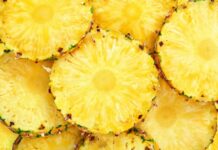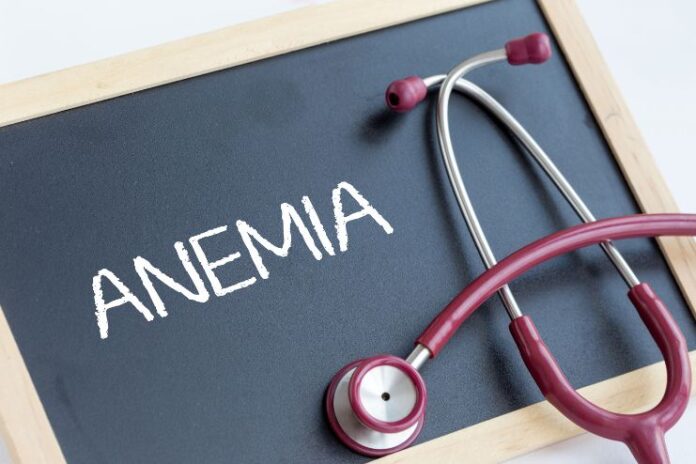Affiliate Disclaimer
Some links in this article are affiliate links. We may earn a small commission if you make a purchase through these links, at no extra cost to you. We only recommend products we find useful to our readersDo you struggle with constant fatigue, pale skin, or shortness of breath? These are common signs of anemia, a condition in which your body lacks enough healthy red blood cells to carry oxygen efficiently. While iron deficiency is often the primary culprit, other factors such as vitamin B12 or folate deficiencies can also lead to this condition.
The good news is that anemia can often be managed with the right combination of nutrition and natural remedies.
In this article, we’ll explore the vital nutrients needed to combat anemia, the foods that can help replenish your body, and natural treatments that support healthy red blood cell production. Whether you’re seeking to prevent anemia or looking for ways to boost your energy, these natural approaches can help restore your vitality and improve your overall health.
Read More: Iron-Rich Leafy Green Salad: Combat Anemia Deliciously
Causes of Anemia?
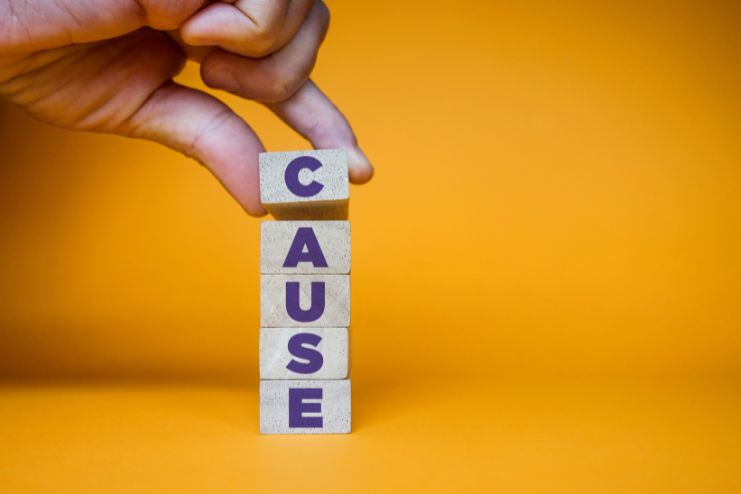
Nutrient Deficiencies and Impaired Red Blood Cell Production
Anemia often results from a lack of essential nutrients that are crucial for red blood cell production. Iron, vitamin B12, vitamin B9 (folate), and folic acid are all vital for synthesizing healthy red blood cells. Deficiencies in these nutrients, especially during pregnancy, can lead to anemia, as the body’s demand for these nutrients increases. Pregnant women are particularly susceptible to anemia due to increased blood volume and the need for additional nutrients to support both mother and child.
Inherited Blood Disorders and Hemolysis
Certain inherited conditions can cause the body to break down red blood cells at an accelerated rate. This process, known as hemolysis, reduces the number of circulating red blood cells and can result in anemia. For example, thalassemia, a genetic disorder, causes defective hemoglobin production, leading to rapid breakdown and a shortened lifespan of red blood cells. Autoimmune hemolytic anemia occurs when the immune system mistakenly attacks and destroys red blood cells. Infections such as malaria (caused by Plasmodium spp.) or bacterial infections (e.g., Mycoplasma and Clostridium) can also lead to hemolysis and contribute to anemia.
Blood Loss (Acute or Chronic)
Blood loss, whether acute or chronic, can significantly lower red blood cell count and lead to anemia. Acute blood loss may occur due to trauma, surgery, childbirth, or conditions like a ruptured aortic aneurysm. Chronic blood loss from conditions such as heavy menstruation, peptic ulcers, hemorrhoids, or colorectal cancer can deplete iron stores, resulting in iron-deficiency anemia over time.
Symptoms of Anemia?
Anemia symptoms can be subtle at first, and many people may not recognize them until the condition progresses. As your red blood cell count declines, the following symptoms may occur, depending on the underlying cause of anemia:
- Fatigue and persistent tiredness
- Weakness with dizziness or lightheadedness
- Paleness of the skin
- Rapid or irregular heartbeat
- Shortness of breath or difficulty breathing
- Chest pain and frequent headaches
- Cold hands and feet
- Easy bruising
- Unexplained weight loss
- High blood pressure (Hypertension)
- Depression or mood changes
- Hair loss
- Irregular periods in women
Home Remedies for Anemia
Anemia requires proper medical attention for its treatment, but there are a number of dietary changes that can effectively cure the disease. Some natural home remedies for Anemia include:
1. Raisins and Dates
This fantastic dried fruit combination is rich in vitamins A and C, as well as iron, magnesium, and copper. Incorporating these dried fruits into your diet can help improve iron absorption and enhance your immune system.
For breakfast or as a snack, try eating three to five dates along with a tablespoon of raisins. This combination will help boost your iron levels and provide you with immediate energy.
2. Moringa Leaves
Moringa leaves are rich in iron, vitamins A, C, and magnesium. Compared to spinach, serving these incredible leaves provides 28 mg more iron. Adding moringa leaves regularly increases red blood cell and hemoglobin levels.
Finely chop 20 to 25 moringa leaves and make a paste, then mix in a teaspoon of jaggery powder, which is also rich in iron. Eat this with breakfast to increase your iron levels.
3. Beetroot
Beets are a great source of iron, copper, phosphorus, magnesium, and the vitamins B1, B2, B6, B12, and C. Thanks to the abundance of nutrients in beets, the body produces more red blood cells and has higher hemoglobin levels.
Add one cup of diced beetroot to a blender, blend until smooth, filter the juice, add one teaspoon of lemon juice, and drink this excellent juice every morning. Lemon juice improves iron absorption and increases vitamin C concentration.
Read More: Did You Know That Diet Plays A Key Role In Anemia?
4. Green Veggies
Leafy greens, particularly dark ones, are a rich source of folic acid and iron due to their high chlorophyll content. These include mustard greens, kale, broccoli, celery, and spinach.
Remember that leafy greens such as spinach and kale contain oxalates, which can bond with iron and block its absorption. Pair those greens with vitamin C-rich foods to improve iron absorption. Swiss chard and collard greens contain both vitamin C and iron.
5. Probiotics
Nutrient absorption depends on gut health. Foods high in probiotics, like yogurt, have beneficial gut bacteria that can enhance gut health and digestion. Consuming probiotic foods can help people with anemia improve their low hemoglobin and red blood cell counts.
6. Sesame Seeds
Sesame seeds are a good source of iron, copper, zinc, selenium, vitamin B6, folate, and vitamin E. Regularly consuming black sesame seeds raises hemoglobin levels and facilitates iron absorption.
Mix one tablespoon of dry-roasted black sesame seeds with one teaspoon of honey, then roll into a ball. Eat this healthy ball frequently to increase your iron intake.
7. Beans
Beans are an excellent source of iron for both vegans and meat eaters. In addition to being high in nutrients, they are reasonably priced, adaptable, and simple to add to salads, soups, and main courses. Beans also supply vital minerals, fiber, and protein, which promote general health and vitality.
Read More: Understanding the Impact of High Blood Sugar on Vision
8. Seafood
Seafood contains an abundance of heme iron, which the body readily absorbs. Iron is especially plentiful in shellfish, such as oysters, clams, scallops, crabs, and shrimp. Most fish species also contain iron, omega-3 fatty acids, and other vital minerals that promote the synthesis of red blood cells and general health.
9. Liver
Since liver is one of the foods highest in iron, it’s an excellent option for treating and preventing anemia. Even though many people steer clear of them, organ meats are a great source of protein, iron, folate, and vitamin B12. Heme iron is abundant in the liver and very absorbable. The heart, kidney, and beef tongue are iron-rich organ meats supporting a healthy, balanced diet by boosting energy level and red blood cell synthesis.
Diet for Anemia Treatment
Making major dietary adjustments is the first step in treating anemia before starting medication. Enhancing hemoglobin levels and promoting healthy red blood cell synthesis require a well-balanced diet high in iron, folate, and other vitamins.
Foods high in iron are essential, but how well they are absorbed depends on the kind of iron ingested. The body depends on two primary types:
- Heme Iron: This readily absorbed iron is present in meat, poultry, and shellfish
- Non-heme Iron: Plant-based and fortified meals contain this type of iron, which requires extra minerals like vitamin C to improve absorption
The recommended daily iron intake usually falls between 150 and 200 mg, but the treatment of anemia varies according to the type and severity of the problem. To guarantee safe and efficient therapy catered to your body’s requirements, always get a prescription from a doctor if you need supplements.
Read More: What Happens When You Have Too Much Sugar In Your Blood?
Foods High in Iron for Anemia Treatment
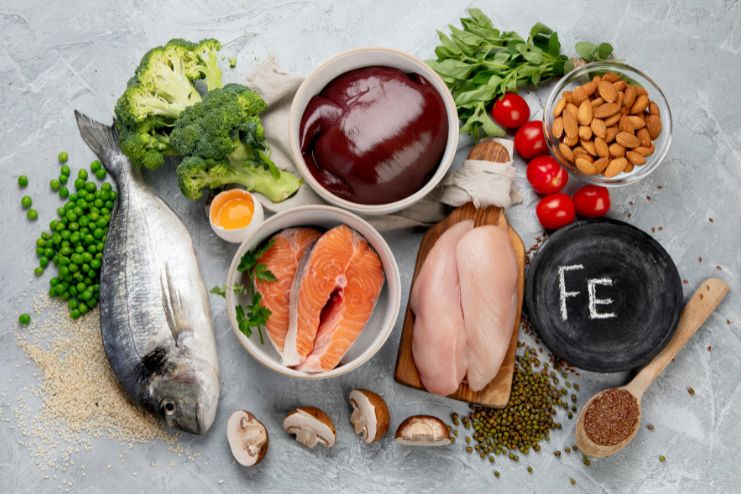
Iron deficiency plays a crucial role in Anemia. While there could be several underlying reasons behind the body’s lack of iron absorption, it is necessary to ensure that one keeps one’s levels in check to avoid anemia.
Some of the best sources of iron in food include:
- Lean and grass-fed beef
- Turkey
- Chicken
- Oysters
- Tofu
- Beans, pulses, and lentils
- Cashew nuts
- Leafy vegetables
- Fortified breakfast cereals
- Whole grain breads
- Baked Potatoes
- Liver
- Edible Seeds
Foods Rich in Vitamin C
Make sure you pair your iron-rich food with vitamin C, to improve iron absorption. Various foods, including fruits and vegetables, contain water-soluble vitamin C. Your body uses it as an antioxidant. Fruits are among the best natural vitamin C sources; several contain as much or more of the vitamin as oranges.
Some of the foods rich in Vitamin C include:
- Oranges
- Lemon
- Sweet Lime
- Different types of berries
- Kiwi
- Tomato
- Kakadu Plums
- Guavas
- Sweet Yellow Peppers
- Parsley
- Kale
Read More: 17 Ways to Lower Your Blood Pressure Naturally
Foods to Avoid If You Have Anemia
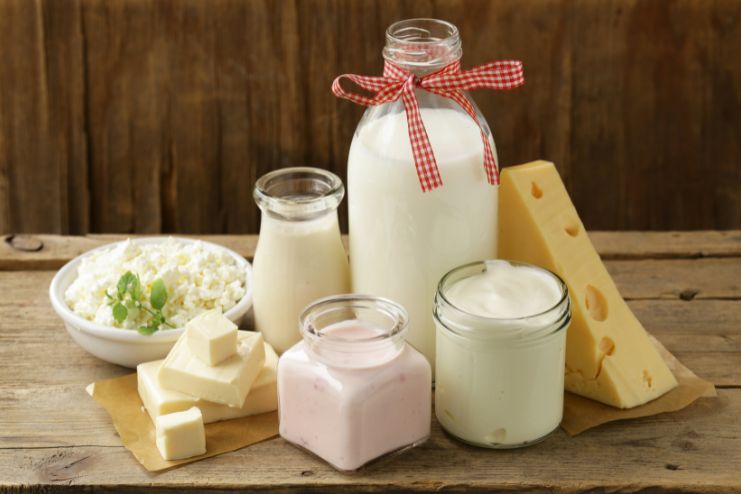
Now that we’ve covered common remedies and foods that can help with anemia, it’s important to also understand what to avoid. Your regular diet plays a vital role in managing anemia, and consuming the wrong foods can aggravate the condition. To support your body in its fight against anemia, make sure to steer clear of certain foods that may hinder iron absorption or interfere with red blood cell production.
Here are some food varieties to avoid if you’re anemic:
- Caffeine: A Big No
Caffeine, found in coffee, tea, and some sodas, contains tannins that can interfere with the absorption of non-heme iron (the type of iron found in plant-based foods). This can significantly reduce your body’s iron levels, making it harder to combat anemia. If you’re anemic, limiting caffeine intake or avoiding it around mealtimes is best to ensure proper iron absorption. - Dairy Products
While dairy products like milk, cheese, and yogurt are rich in calcium, they can also hinder your body’s ability to absorb iron. Calcium competes with iron for absorption, which could lower your overall iron levels. This doesn’t mean you need to eliminate dairy entirely, but it’s a good idea to consume it separately from iron-rich meals, especially if you’re dealing with anemia. - Oxalic Acid-Rich Foods
Foods high in oxalic acid, such as peanuts, spinach, and chocolate, can also inhibit iron absorption. While they offer many nutritional benefits, it’s best to limit their consumption or pair them with foods that enhance iron absorption to avoid impacting your body’s iron levels. Moderation is key when consuming these foods as part of an anemia-friendly diet.
Read More: How Stress Hormones Spike Blood Pressure and 6 Strategies to Reduce Stress for Heart Health
Anemia During Pregnancy

Anemia is a condition where the body doesn’t have enough healthy red blood cells (RBCs) to carry sufficient oxygen to tissues and organs. During pregnancy, anemia can occur when the body’s ability to transport oxygen through the blood is compromised, affecting both the mother and the developing fetus. This condition is common during pregnancy and can lead to complications if left untreated.
The Role of Hemoglobin
Hemoglobin, a crucial protein found in red blood cells, is responsible for storing and transporting oxygen from the lungs to the rest of the body. It also helps move carbon dioxide from the body to the lungs for exhalation. The body requires a steady supply of iron and essential vitamins to produce hemoglobin and healthy red blood cells. Without these nutrients, your body may not produce enough hemoglobin, leading to anemia.
Pregnant women are particularly vulnerable to anemia due to increased demands for iron and other micronutrients. Here are the three most common types of anemia during pregnancy:
- Iron-Deficiency Anemia
During pregnancy, a woman’s iron needs increase dramatically. Iron is essential for:- Supporting the growing demands of the placenta and fetus
- Maintaining increased red blood cell production
- Replenishing iron lost during childbirth
Iron-deficiency anemia is the most prevalent type of anemia during pregnancy, affecting nearly 40% of pregnant women worldwide. If left untreated, it can negatively impact both the mother’s and baby’s health.
- Folate-Deficiency Anemia
Folate, a water-soluble B vitamin, is vital for the proper development of the fetus, especially for cell division and growth. A folate deficiency can lead to serious birth defects such as neural tube defects, including anencephaly (a fatal condition where parts of the brain and skull are missing) and spina bifida (which affects the spine and nervous system). Insufficient folate intake before and during pregnancy has also been linked to low birth weight and preterm birth. - Vitamin B12-Deficiency Anemia
Vitamin B12 is necessary for the production of red blood cells. It is found naturally in animal-based foods like eggs, meat, fish, and dairy. Deficiency in vitamin B12 can lead to pernicious anemia, a condition in which the body cannot absorb B12 due to an autoimmune disorder affecting the stomach lining. Vitamin B12 deficiency is particularly common in older adults and can result in neurological problems if left untreated.
Read More: Hidden Sugars in Your Favorite Foods (and How to Avoid Them)
When to See a Doctor for Anemia
Anemia is often overlooked because its early symptoms, such as fatigue, are commonly dismissed as nothing more than tiredness. However, a low red blood cell count can seriously affect your health, which is why it’s essential to consult a doctor if you notice any signs or symptoms of anemia.
If you find yourself constantly feeling exhausted, there could be various underlying causes, with anemia being one of the primary possibilities. It’s essential to seek medical attention early to prevent the condition from worsening.
Anemia is a common health issue worldwide, yet many people delay seeking treatment, mistakenly thinking their symptoms are not severe. By recognizing the warning signs and addressing the issue promptly, you can take steps to protect your health.
We hope this information helps you better understand anemia and encourages you to take action if needed.
Read More: What Happens When You Have Too Much Sugar In Your Blood?
Conclusion
Anemia is not just about low iron levels; it’s about restoring your body’s vitality, energy, and balance. With the right lifestyle and natural remedies, you can effectively combat anemia. Nutrient-rich greens, vitamin C-packed foods, and iron-rich options like liver, seafood, and beans all play a role in improving your health.
However, food alone isn’t enough. Consistency is key. Staying active, drinking plenty of water, and pairing iron-rich foods with vitamin C for better absorption are essential to managing anemia. Simple daily changes, like swapping processed foods for nutrient-dense meals, can significantly enhance your overall wellness.
Now is the time to take control of your health. Make mindful eating a part of your daily routine, explore new flavors, and incorporate these natural remedies into your life. You’ll see the transformation from the inside out by nurturing your body organically.
-
Aug 2018Written by Somapika D
-
Mar 2025Edited by Ankita
References
- https://healthmatch.io/anemia/home-remedies-for-anemia#how-can-i-fix-anemia-naturally
- https://www.netmeds.com/health-library/post/anemia-5-awesome-natural-remedies-to-boost-your-iron-levels
- https://consensus.app/questions/home-remedies-for-anemia
- https://www.healthline.com/nutrition/vitamin-c-foods#TOC_TITLE_HDR_12
- https://www.verywellhealth.com/vitamin-c-foods-8701111
- https://www.webmd.com/diet/foods-high-in-vitamin-c
- https://www.verywellhealth.com/treatments-for-iron-deficiency-anemia-3522500
- https://www.healthline.com/health/best-diet-plan-for-anemia#meat-and-poultry
- https://www.medicalnewstoday.com/articles/anemia-in-pregnancy#types-during-pregnancy
- https://www.cedars-sinai.org/health-library/diseases-and-conditions/a/anemia-in-pregnancy.html
- https://www.medparkhospital.com/en-US/disease-and-treatment/anemia
- https://www.webmd.com/a-to-z-guides/understanding-anemia-basics
- https://www.pennmedicine.org/for-patients-and-visitors/patient-information/conditions-treated-a-to-z/anemia
In this Article










